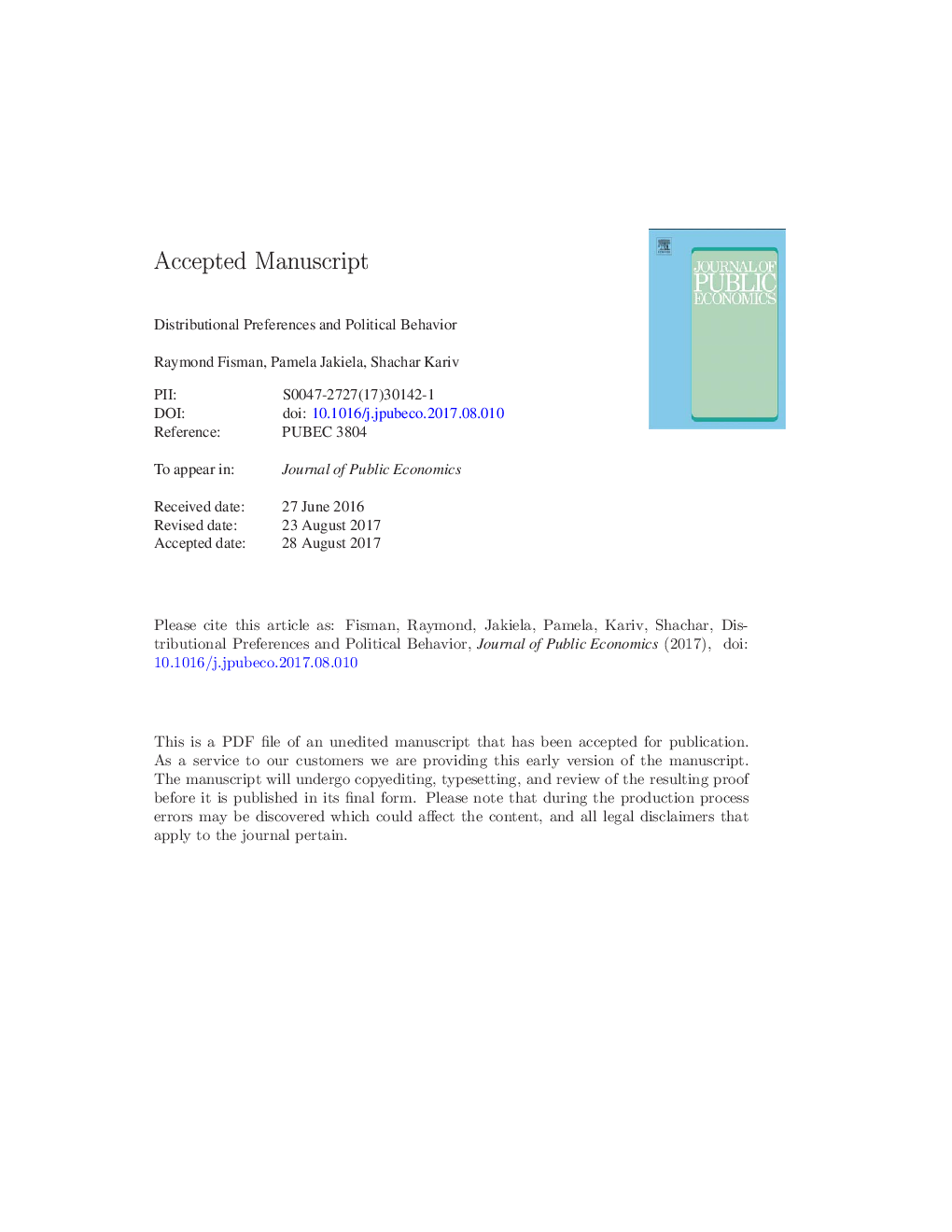| Article ID | Journal | Published Year | Pages | File Type |
|---|---|---|---|---|
| 5101739 | Journal of Public Economics | 2017 | 33 Pages |
Abstract
We document the relationship between distributional preferences and voting decisions in a large and diverse sample of Americans. Using a generalized dictator game, we generate individual-level measures of fair-mindedness (the weight on oneself versus others) and equality-efficiency tradeoffs. Subjects' equality-efficiency tradeoffs predict their political decisions: equality-focused subjects are more likely to have voted for Barack Obama in 2012, and to be affiliated with the Democratic Party. Our findings shed light on how American voters are motivated by their distributional preferences.
Keywords
Related Topics
Social Sciences and Humanities
Economics, Econometrics and Finance
Economics and Econometrics
Authors
Raymond Fisman, Pamela Jakiela, Shachar Kariv,
